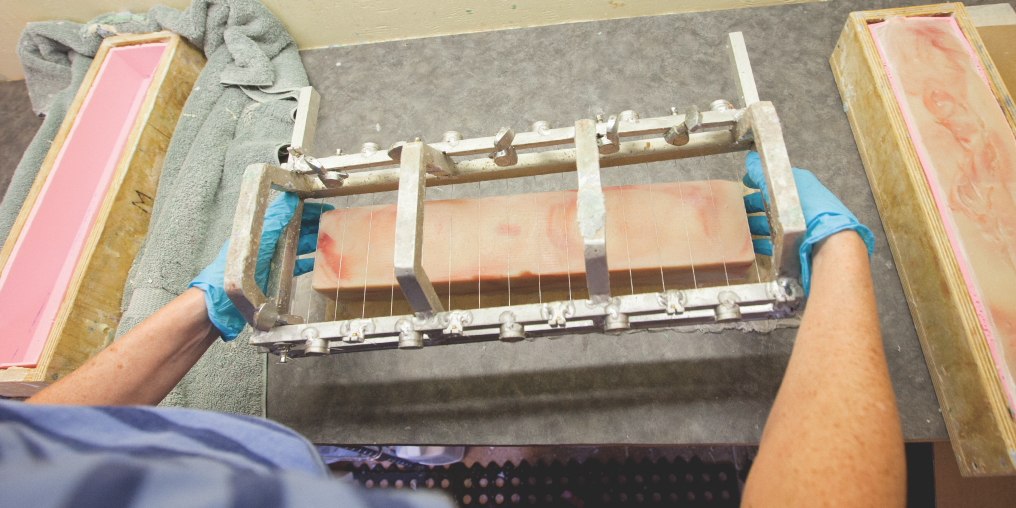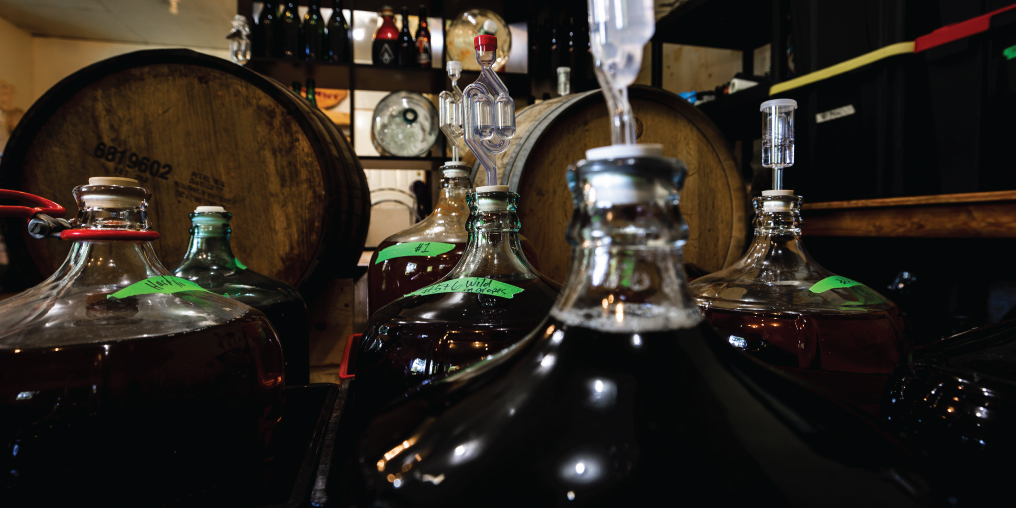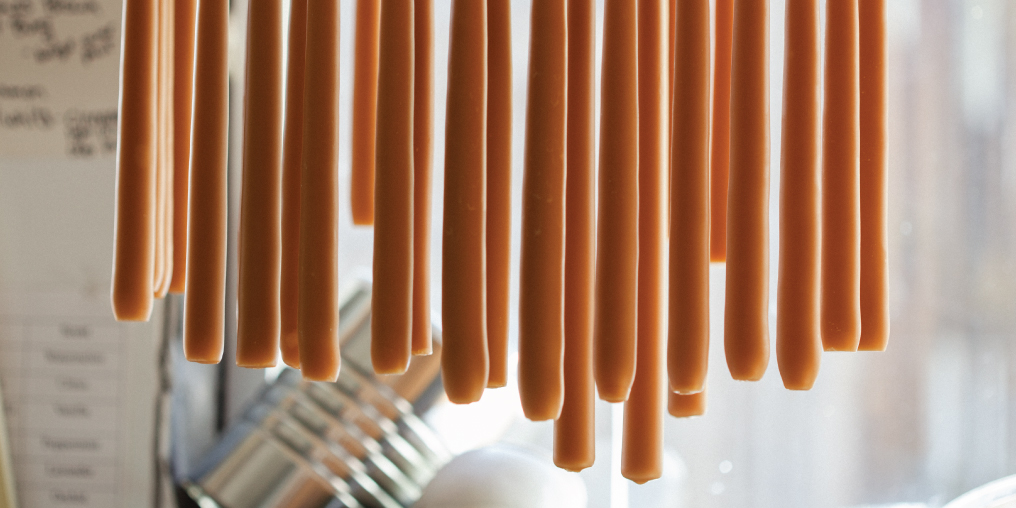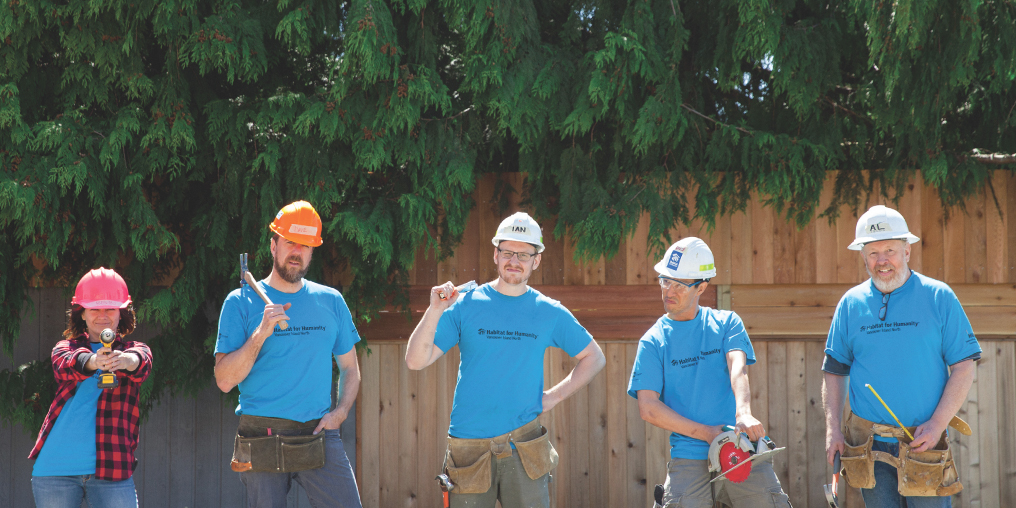They have distinct products and personal journeys, but their motivation is shared: your skin is your body’s largest and fastest-growing organ, and it deserves the best possible care. Local soap artists Trina McNeice of Hornby Island Soap Company and Michelle Forslund of Royston Soapworks* are determined to educate the public about their unique handcrafted soap, and how it can help you do exactly that.
First, let’s talk about basic chemistry. When natural oils are combined with a lye solution, with or without the addition of heat, the saponification process creates a solid bar of soap. Glycerin—a byproduct of the process—is a skin repairing humectant that draws moisture into the outer layer of the skin making it smooth, soft, and supple. During the commercial soap-making process, glycerin is typically extracted for use as an ingredient in other higher value skin care products, while hand crafted soap is intentionally rich in glycerin and other nourishing substances carefully selected by its creator.
Now let’s talk art. For Michelle, soap making is her main creative outlet. Constant experimentation over the last 11 years remains a key part of the fun, and drives her evolving product line. Her cold, small-batch process and base recipe—a combination of olive oil, coconut oil, and certified sustainable palm oil—enables her to play with vibrant colours, creative shapes, and enticing fragrances. She even uses beer, wine, or infused tea in some of her recipes. For Trina, living in Portugal for five years inspired a product line based on only two main ingredients: water and olive oil. Over the past six years, experimentation influenced by her travels and her customers has led to 24 main scents with the occasional new custom product. Hot processed and typically scented using essential oils, her soaps are produced in larger batches with the assistance of a few part-time employees. Both studios are vibrant displays and a treat for the senses.
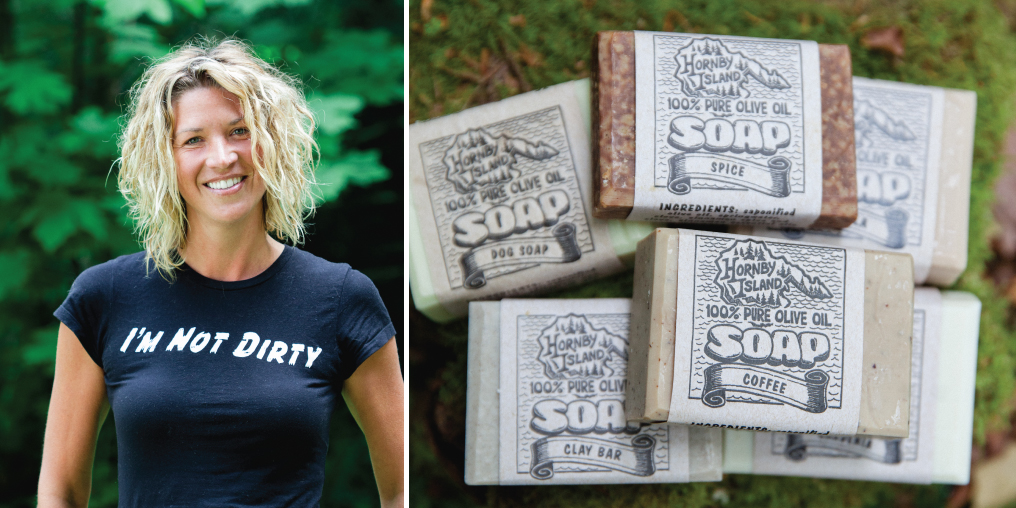
The process may be simple, but it is precise and time-consuming. Once mixed, handmade soap takes 1-5 days to harden before it can be cut, and this depends on the ratio of hard oils (like coconut oil) to soft oils (like olive oil). Curing and dehydration then takes between 4-6 weeks to ensure a stable product that is body safe without traces of lye. Both craftswomen use custom equipment to maximize efficiency.
Both businesses thrive without dedicated marketing—relying only on word of mouth. Hornby Island Soap Company got its start through an act of goodwill and mentoring by its sister company’s founder, Colleen Work of Hornby Island Soap. Trina’s trademark soap, bath, and skin-care products can be found at regional markets and a small number of local retail stores, or ordered online. An exclusive new product line is now available at the Kingfisher Spa and Resort, with a second in development for the Tigh-Na-Mara Seaside Spa Resort in Parksville.
Royston Soapworks also started small selling exclusively to friends and family, and at a small roadside farm stand policed by a karma camera. Michelle’s products are still available at the roadside Soap Bar on Minto Road—now an international tourist hotspot—as well as at local markets, a few local retail stores, her online store, and various online wedding registries. You can also find her custom products at 40 Knots Vineyard & Estate Winery and the Cumberland Brewing Company.
So the next time your soap runs out, think about nourishing your skin as well as your local community. My skin has never felt better.
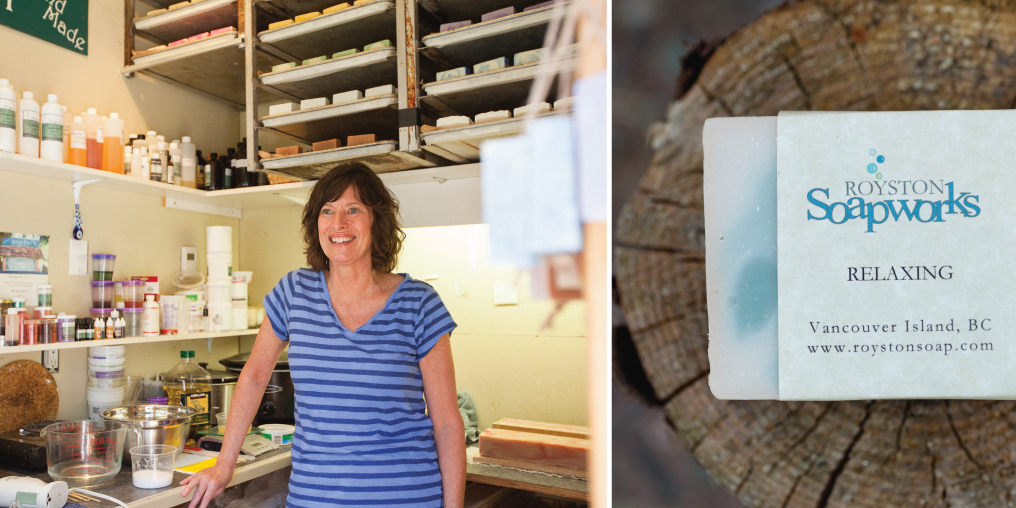
*Editor’s note: Royston Soapworks is no longer in operation.

